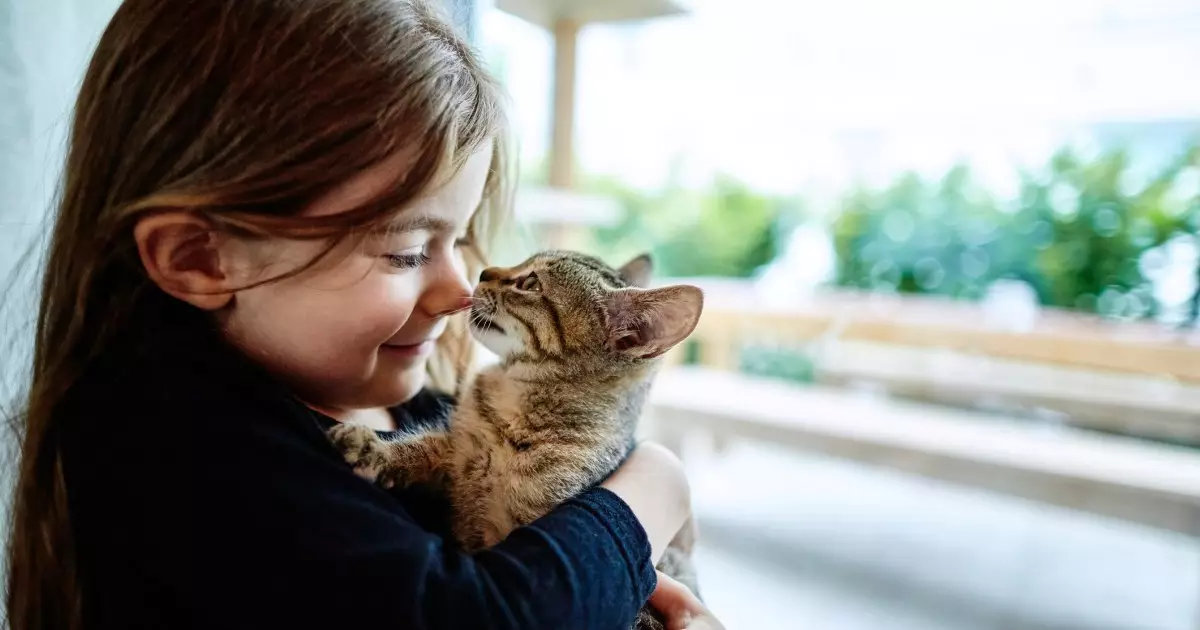The relationship between cats and children is not just heartwarming; it plays a crucial role in shaping the emotional and social development of youngsters. Cats, with their playful demeanor and independent nature, serve as excellent companions for children. While every pet offers some level of emotional support, the bond between a cat and a child goes beyond mere companionship—it fosters responsibility, empathy, and emotional intelligence.
Children naturally gravitate towards playful and curious activities, which aligns perfectly with a cat’s instinctual behaviors. Together, they embark on adventures filled with squeaky toys and feathered playthings, creating moments that not only entertain but also educate. In this unique interplay, children learn valuable lessons about care and friendship, setting the foundation for their future relationships.
Bringing a cat into a household is far more than adding a pet; it is an opportunity to instill strong values in children. When tasked with feeding, grooming, and providing a loving environment for their feline friends, youngsters begin to develop a sense of responsibility. For instance, the act of brushing a cat’s fur or ensuring its litter box is clean offers practical experience in day-to-day care.
Although scooping litter boxes may seem trivial or even unpleasant to children, these moments are crucial for teaching them about accountability and commitment. This foundational experience shapes children’s understanding of the impact of their actions, emphasizing the importance of caring for others who depend on them, whether they have fur or not.
A significant benefit of having a cat in a child’s life is the development of empathy. Cats, with their distinct personalities and varying moods, encourage children to acknowledge and value differences among beings. Through observing a cat’s behavior, children learn to read non-verbal cues, enhancing their social skills.
This understanding is particularly evident during playful or quiet moments shared with their feline friends. When kids witness a cat needing space or wanting to engage, they learn to adjust their interactions accordingly. This fosters emotional intelligence by allowing them to consider the feelings and needs of another living being.
The therapeutic benefits of interacting with cats extend to emotional regulation and stress relief. Scientific studies have shown that petting a cat triggers the release of feel-good hormones, promoting relaxation and reducing anxiety. For children grappling with the ups and downs of growing up, having a calm and non-judgmental listener in a cat can provide solace during turbulent times.
Moreover, cats serve as a low-pressure outlet for children to express themselves. In a world where peer opinions can be daunting, the simple act of confiding in a pet can boost a child’s confidence. Cats do not critique or belittle; they provide unconditional support, helping children navigate their emotions without fear of judgment.
Language and communication development are additional benefits of cat ownership. Children often engage in imaginative dialogue with their cats, narrating stories or sharing their day. This unique form of interaction encourages verbal skills, as youngsters articulate their thoughts and feelings in a safe context.
Conversing with a cat allows children to practice interaction without the complexities of adult conversations or peer relationships. This develops not just their language skills but also their understanding of conversational dynamics. They learn to listen, interpret responses, and engage in reciprocal interactions.
As children grow and evolve, the memories forged with their feline companions remain timeless. An array of shared experiences—from playful antics to quiet cuddles—creates an irreplaceable bond. These moments become cherished stories that children carry into adulthood, woven into the fabric of their lives.
The presence of a cat in a child’s formative years can strengthen familial bonds, as pets often become integral family members. Celebrating birthdays, holidays, and even mundane moments alongside a cat intensifies that unique connection, leading to a treasure trove of memories that will last a lifetime.
With so many benefits to reap from having a cat, it is clear that their impact on a child’s development is profound. From instilling a sense of responsibility and promoting empathy to alleviating stress and enhancing communication skills, the enriching presence of a cat cannot be overstated. Cats are not merely pets; they are educators and confidants in the journey of childhood, leaving a pawprint on the hearts of those lucky enough to share their lives with them. Embracing this bond enriches childhood experiences and creates a legacy of love, understanding, and responsibility that is cherished for years to come.


Leave a Reply